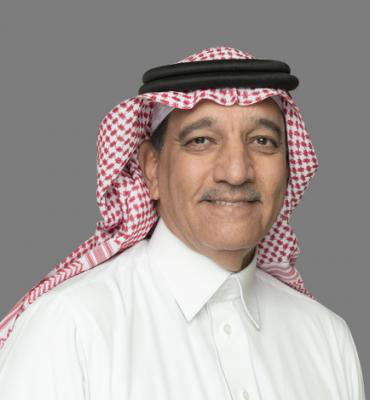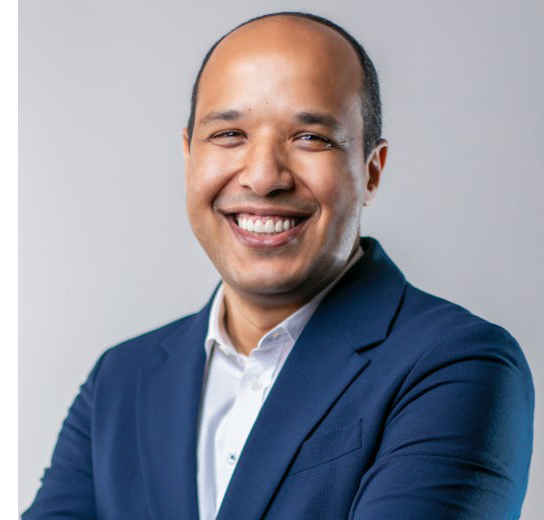RIYADH: Saudi oil giant Aramco’s robust integrated expansion strategy is helping to drive forward the Kingdom’s Vision 2030 economic diversification plan while it balances sustainability concerns, experts have told Arab News.
Situated at the heart of Saudi Arabia’s energy sector transformation, the state-owned firm has been focused on creating new market opportunities and increasing integration across various areas.
Economists have told Arab News that Aramco is not just focused on adding to Saudi Arabia’s bottom line, but is also developing technological innovation to help deliver on ambitious environmental goals.
These include a special $1.5 billion fund created to invest in technology that can help lower fossil fuel use — underlining the company’s commitment to reducing its carbon footprint and driving energy efficiency.
Saudi-based economist Talat Hafiz told Arab News: “Among the several features that Aramco is careful to achieve aside from growth is reaching a level of sustainable business that supports the company’s growth in a very complex business environment, especially when considering the changes happening in the world energy mix and the introduction of new energy alternatives such as renewable and nuclear energies.”

Talat Hafiz
Hafiz emphasized the importance of the firm’s diversification strategy, saying that the firm can “easily mitigate the risks associated with any investments locally or abroad” especially when considering the successful investments that Aramco has made locally & internationally.
“Aramco’s expansion business strategy is deeply designed and thought out to add value through opening new market opportunities and creating a chance for more integration, especially when considering that Aramco is a diversified energy company and not only an oil and gas producing entity, ” he added.
A pivotal aspect of the company’s global strategy is its venture capital arm, Aramco Ventures, which recently received a $4 billion injection to propel the development of disruptive technologies.
This initiative underscored Aramco’s dedication to diversifying its portfolio and supporting startups worldwide, aligning with its long-term objectives in new energies, chemicals, and digital technologies.
Discussing Aramco’s technological investments and sustainability efforts, Hafiz noted: “Aramco is a major player locally and internationally in ensuring that its business is sustainable not only financially but also to support the Kingdom’s efforts to reach net-zero emissions goals by 2060. Aramco is committed to becoming carbon neutral by 2050 and has since been unveiling numerous initiatives and projects.”
Looking forward, Aramco’s strategic roadmap includes further expansion into new markets, particularly in Asia and North America, and leveraging its venture capital arm to incubate disruptive technologies.
CEO Amin Nasser has long affirmed that the company is “looking at the current market status which, even though challenging, presents an excellent opportunity for growth.” This forward-thinking approach underscored the strategic vision to secure the position as a leader in the global energy landscape.
Formed in the 1930s and becoming state-owned in the 1980s, Aramco saw its global footprint expand rapidly during the 1990s.
This included downstream joint ventures established in the US and South Korea which marked the company’s strategic diversification beyond upstream operations, positioning it as a key player in global energy markets.
Moving into the 21st century, key milestones included the launch of Petro Rabigh in 2009, Aramco’s first petrochemical plant, followed by the formation of Sadara Chemical Co. in 2011 and the commissioning of SATORP and YASREF refineries in 2014.
The firm’s global outreach extended to Europe, Asia, and the Americas, fostering collaborations with international partners and universities on sustainable energy solutions.
By 2018, Aramco had achieved significant milestones in unconventional resource production and announced its ambitious acquisition of a majority stake in SABIC, transforming it into a major global petrochemicals producer.
Deals completed in recent months include acquiring a 50 percent stake in the Jubail-based Blue Hydrogen Industrial Gases Co., a 10 percent stake in a thermal engines joint venture between French carmaker Renault and Chinese automaker Geely, and a 40 percent equity stake in Gas & Oil Pakistan.
Away from energy, Aramco has also been keen to boost other blossoming sectors in Saudi Arabia.
A 47,000-capacity arena, to be called the Aramco Stadium, is to be built in Alkhobar in the Eastern Province following a cooperation agreement between real estate developers ROSHN Group and the company.
As well as sponsoring the Esports World Cup held in Riyadh in July, Aramco also provided a high-end simulator zone which offered a hyper-realistic experience akin to driving a Formula 1 car.
The company’s diversification efforts echo those of Saudi Arabia in general, and economist and policy adviser Mahmoud Khairy said Aramco and the Kingdom are able to pursue these endeavors as the business generates “substantial revenue” for the country.

Mahmoud Khairy
“This income allows the government to invest in various sectors, promoting a more balanced economic structure,” he said, adding: “Aramco’s investments in non-oil sectors, including petrochemicals, refining, and renewable energy, are designed to create a more diversified economic structure and reduce the Kingdom’s reliance on crude oil exports.”
As well as financial rewards, the company is benefiting from working with some of the best and brightest in the world.
“Aramco’s strategic partnerships and acquisitions abroad have not only expanded its global footprint but also brought in foreign expertise and technology to Saudi Arabia. These global engagements help transfer knowledge and best practices to the Kingdom, aiding in its economic modernization,” Khairy added.
Aramco’s downstream expansion has brought significant economic benefits both locally and globally. In Saudi Arabia, it has spurred job creation across sectors like manufacturing and logistics, reducing unemployment and fostering a skilled workforce, according to Khairy.
“Globally, Aramco ensures stable supplies of refined products and petrochemicals, supporting industries worldwide. Its efficient operations enable competitive pricing, benefiting global consumers and enhancing economic efficiency,” he added.
Regarding the economic and policy incentives to encourage Aramco’s investment in new energy technologies, Khairy suggested: “Providing tax credits or exemptions tailored to investments in renewable energy and clean technologies, subsidies, grants, and low-interest loans specifically designed for renewable energy projects can mitigate initial investment costs and promote quicker adoption of new technologies.”
Regulatory support, including feed-in tariffs, clear and stable regulatory frameworks, and streamlined permitting processes, are essential to reduce risks and uncertainties, according to the expert.
Hafiz emphasized the importance of Aramco’s commitment to sustainability: “Aramco is a major player locally and internationally in ensuring that its business is sustainable not only financially but also to support the Kingdom’s efforts to reach net-zero emissions goals by 2060.”
He noted that Aramco is committed to becoming carbon neutral by 2050 and has since been unveiling numerous initiatives and projects.
“Aramco is committed to investing in blue and green hydrogen and carbon capturing,” said Hafiz.























